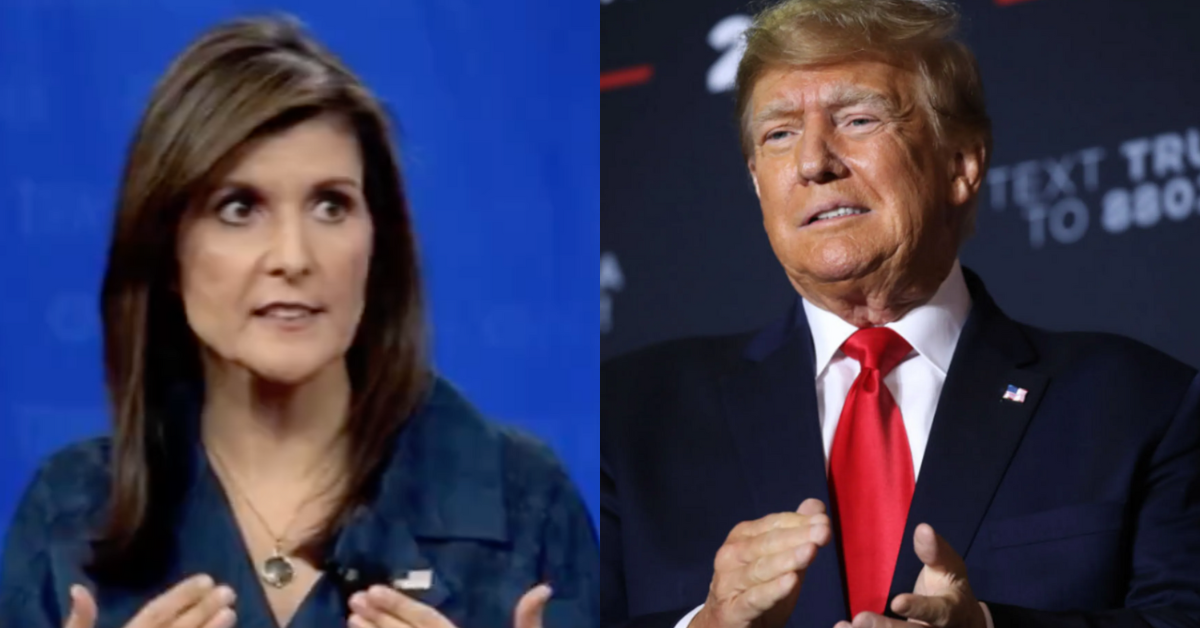pardon
Top stories
Nikki Haley Dragged After Saying Why She'd Pardon Trump: 'It's Not About Guilt Or Innocence'
Nikki Haley drew online users' ire after explaining why she would pardon Trump, and it has nothing to do with his 'guilt or innocence.'
Former South Carolina Governor and GOP presidential hopeful Nikki Haley was criticized after she declared during a recent town hall in New Hampshire her intent to grant a presidential pardon to former President Donald Trump if he were to be convicted of a crime.
According to Haley, the pardon would be executed in the "best interest of the country." In response to a question posed by a 9-year-old, Haley unambiguously stated:
"I would pardon Trump... For me it's not about guilt or innocence. It's about what's in the best interest for the country and I don't think our country will move forward with an 80-year-old President sitting in jail that allows our country to continue to be divided."
"We have to move on past that and I honestly do believe, just like they did with [former President Richard Nixon] you've got to say what's in the best interest of the country and I think pardoning Trump and moving on is in the best interest of our country." ...
"What's in the best interest of the country would be to pardon him so that we can move on as a country and no longer talk about him."
You can hear what she said in the video below.
The potential pardon holds significant weight as Trump faces a daunting array of legal challenges, totaling 91 felony charges across multiple states, including Florida, New York, and Georgia. The charges encompass allegations spanning attempts to overturn the 2020 election results, election interference, mishandling classified materials, and allegations surrounding hush money paid to a porn star.
It's evident—though controversial—that in addressing the prospect of a Trump conviction, Haley emphasized the urgency of pardoning him, envisioning it as a means to shift the nation's focus away from the former President. She reasoned that a pardon would facilitate the country's progression by alleviating the ongoing discourse surrounding Trump.
However, Haley's stance has not been without criticism.
Former New Jersey Governor Chris Christie condemned Haley's remarks, particularly her advocacy for a pardon even before the trial for Trump's alleged election interference began. Christie's rebuke extended to Haley's recent controversial statements, notably her reluctance to acknowledge slavery as the root cause of the Civil War during a separate campaign event.
On the matter of Trump, he said:
"Well, what that should tell the American people is that she believes in two systems of justice: one for all of us and one for the most powerful."
Christie's criticism comes as Haley faces mounting scrutiny, including her refusal to outrightly reject a potential role in a hypothetical second Trump administration, a stance Christie labeled as "insulting."
Others were similarly insulted—and criticized Haley for promoting a belief in dual justice systems.
Haley's remarks lie in stark contrast to those recently made by Christie, who staunchly declared his reluctance to grant a pardon to former President Trump if Trump were convicted of a crime.
During an appearance on The View on Wednesday, Christie emphatically stated his opposition when co-host Joy Behar queried him about fellow GOP presidential candidates Haley and Ron DeSantis’ willingness to pardon Trump and asked if Christie would follow suit.
He said:
“No, no, no, no."
"As a governor, I issued pardons. And one of the things you have to do is look at the person. The person has to accept responsibility for what they did."
"Do you think Donald Trump will ever accept responsibility for anything he did?”
“It’d be really the easiest pardon decision I would ever have to make as president. You don’t accept responsibility? Too bad. Go to jail.”
Christie previously said he “can’t imagine” issuing a pardon to Trump in one of the federal cases brought by Special Counsel Jack Smith, which centers on his deliberate retention of sensitive government documents despite being subpoenaed for classified records.
 SECONDNEXUS
SECONDNEXUS percolately
percolately georgetakei
georgetakei comicsands
comicsands George's Reads
George's Reads





